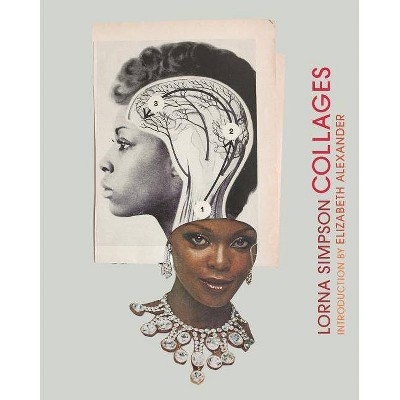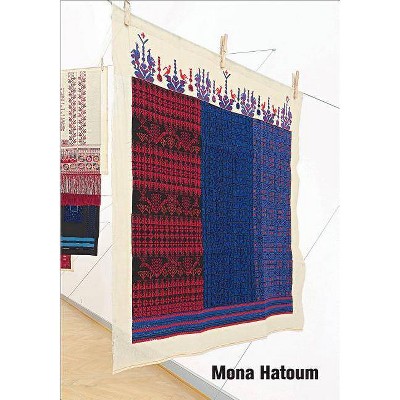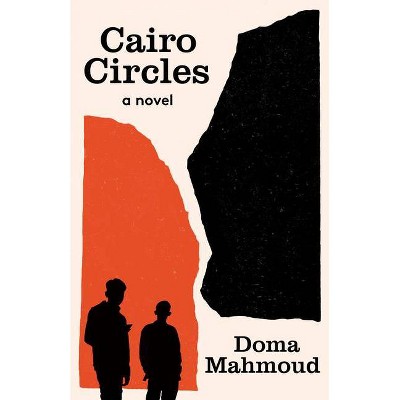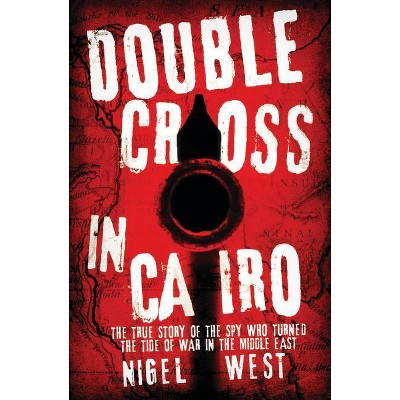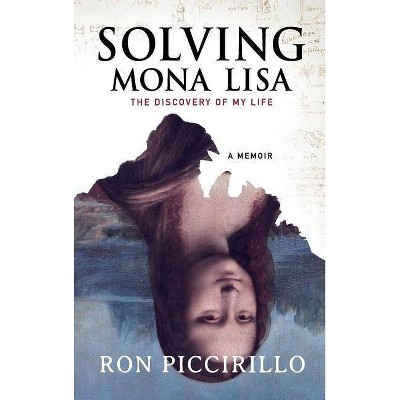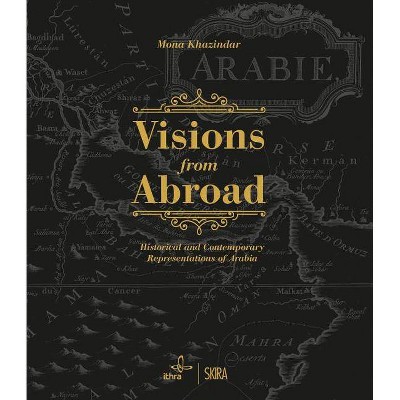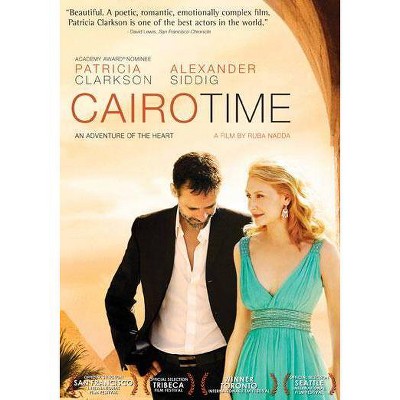Cairo Collages - by Mona Abaza (Hardcover)
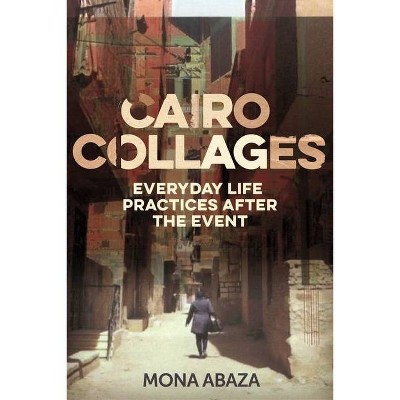
Similar Products
Products of same category from the store
AllProduct info
<p/><br></br><p><b> About the Book </b></p></br></br>With the military seizing overt power in Egypt, Cairo's grand and dramatic urban reshaping during and after 2011 is reflected upon under the lens of a smaller story narrating everyday interactions of a middle-class building in the neighbourhood of Doqi.<p/><br></br><p><b> Book Synopsis </b></p></br></br><p><em>'</em>Rarely has a book immersed a reader into what it really means to inhabit a city, with all of its inscriptions, wayward intersecting lives, resounding contradictions, promiscuous aspirations, and stubborn constraints. Much more than collage, this is a compendium of Abaza's creative engagements with her messy surrounds, a <em>tour de force</em> of a life she has made Cairo worth living.'<br /> AbdouMaliq Simone, University of Sheffield<br /> <br /> <em>'Cairo collages</em> comes to crown Abaza's already impressive contribution to studies on Cairo since the mid-1950s. Using her own apartment building as a topos through which to read political, economic, social, and aesthetic transformations in the country as a whole, Abaza ably balances meticulous insight with heart-wrenching black humour on the janus-faced city whose very name encapsulates its contradictions: at once victorious and vanquisher.'<br /> Samia Mehrez, The American University in Cairo<br /> <br /> 'From a long standing witness of impeccable credentials, we are presented with a harrowing portrait of Cairo since the January Revolution. People disappear into themselves or abroad or rounded up by the state as the revolutionary tide recedes and reaction is restored. Abaza discerns order behind chaos, plumbing the depths of a new political morality. A brilliant rendition of endless movement in space and time, the daily nightmare and creativity of life in the megalopolis of the Global South.'<br /> Michael Burawoy, University of California, Berkeley<br /> <br /> 'Collage relies on cuts and juxtapositions of discontiguous and unlikely elements and thus provides a productively evocative aesthetic form for urbanisation in the present. Cairo after the revolution in quotation marks emerges in Abaza's graceful, sardonic and chaotic scenes through an ethnography of ethics: one in which the cut necessary for collage becomes not only the site of violence and rupture but also suture, repair and care. <em>Cairo collages </em>demarcates the quiet coup of the quotidian city that is anything but everyday.'<br /> Ryan Bishop, University of Southampton<br /> <br /> Cairo is a city of collective exhaustion. From the 2011 revolution to Sisi's seizure of power in 2013, like millions of others, Mona Abaza was swallowed by a draining and exhausting daily life of a city caught up in the aftermath of revolt. A daily life that transformed countless people into all-embracing apolitical subjects.<br /> <br /> <em>Cairo collages</em> narrates four parallel tales about Cairo's urban transformations in the twenty-first century, examining everyday life and resilience after 2013. Weaving personal narrative with incisive theoretical discussions of quotidian and everyday, Abaza raises essential sociological questions regarding global orientations pertaining to emerging military urbanism. With reflections on the long hours of commuting to the gated communities in the desert east of Cairo, and the daily material lives and social interactions of residents in a decaying middle-class buildings, Abaza's collage of landscapes weaves together the transmutations underway in the various Cariene geographies.</p><p/><br></br><p><b> From the Back Cover </b></p></br></br><i>'</i>Rarely has a book immersed a reader into what it really means to inhabit a city, with all of its inscriptions, wayward intersecting lives, resounding contradictions, promiscuous aspirations, and stubborn constraints. Much more than collage, this is a compendium of Abaza's creative engagements with her messy surrounds, a <i>tour de force</i> of a life she has made Cairo worth living.' AbdouMaliq Simone, University of Sheffield <i> 'Cairo Collages</i> comes to crown Abaza's already impressive contribution to studies on Cairo since the mid-1950s. Using her own apartment building as a topos through which to read political, economic, social, and aesthetic transformations in the country as a whole, Abaza ably balances meticulous insight with heart-wrenching black humour on the janus-faced city whose very name encapsulates its contradictions: at once victorious and vanquisher.' Samia Mehrez, The American University in Cairo 'From a long standing witness of impeccable credentials, we are presented with a harrowing portrait of Cairo since the January Revolution. People disappear into themselves or abroad or rounded up by the state as the revolutionary tide recedes and reaction is restored. Abaza discerns order behind chaos, plumbing the depths of a new political morality. A brilliant rendition of endless movement in space and time, the daily nightmare and creativity of life in the megalopolis of the Global South.' Michael Burawoy, University of California, Berkeley 'Collage relies on cuts and juxtapositions of discontiguous and unlikely elements and thus provides a productively evocative aesthetic form for urbanisation in the present. Cairo after the revolution in quotation marks emerges in Abaza's graceful, sardonic and chaotic scenes through an ethnography of ethics: one in which the cut necessary for collage becomes not only the site of violence and rupture but also suture, repair and care. <i>Cairo Collages </i>demarcates the quiet coup of the quotidian city that is anything but everyday.' Ryan Bishop, University of Southampton Cairo is a city of collective exhaustion. From the 2011 revolution to Sisi's seizure of power in 2013, like millions of others, Mona Abaza was swallowed by a draining and exhausting daily life of a city caught up in the aftermath of revolt. A daily life that transformed countless people into all-embracing apolitical subjects. <i>Cairo collages</i> narrates four parallel tales about Cairo's urban transformations in the twenty-first century, examining everyday life and resilience after 2013. Weaving personal narrative with incisive theoretical discussions of quotidian and everyday, Abaza raises essential sociological questions regarding global orientations pertaining to emerging military urbanism. With reflections on the long hours of commuting to the gated communities in the desert east of Cairo, and the daily material lives and social interactions of residents in a decaying middle-class buildings, Abaza's collage of landscapes weaves together the transmutations underway in the various Cariene geographies.<p/><br></br><p><b> Review Quotes </b></p></br></br><br><i>'</i>Rarely has a book immersed a reader into what it really means to inhabit a city, with all of its inscriptions, wayward intersecting lives, its resounding contradictions, promiscuous aspirations, and stubborn constraints. Much more than collage, this is a compendium of Abaza's creative engagements with her messy surrounds, a <i>tour de force</i> of a life she has made Cairo worth living.' AbdouMaliq Simone, University of Sheffield <i> 'Cairo Collages</i> comes to crown Mona Abaza's already impressive contribution to studies on Cairo since the mid 1950s. Using her own apartment building as a topos through which to read political, economic, social, and aesthetic transformations in the country as a whole in the aftermath of 2011 Abaza ably balances meticulous insight with heart-wrenching black humor on the janus-faced city whose very name encapsulates its contradictions: at once victorious and vanquisher.' Samia Mehrez, The American University in Cairo 'From a long standing witness of impeccable credentials, we are presented with a harrowing portrait of Cairo since the January Revolution. People disappear into themselves or abroad or rounded up by the state as the revolutionary tide recedes and reaction is restored. Mona Abaza discerns order behind chaos, plumbing the depths of a new political morality. A brilliant rendition of endless movement in space and time, the daily nightmare and creativity of life in the megalopolis of the Global South.' Michael Burawoy, University of California, Berkeley 'Collage relies on cuts and juxtapositions of discontiguous and unlikely elements and thus provides a productively evocative aesthetic form for urbanisation in the present, as Mona Abaza deftly captures. Cairo after the revolution in quotation marks emerges in Abaza's graceful, sardonic and chaotic scenes through an ethnography of ethics: one in which the cut necessary for collage becomes not only the site of violence and rupture but also suture, repair and care. <i>Cairo Collages </i>demarcates the quiet coup of the quotidian city that is anything but everyday.' Ryan Bishop, University of Southampton<br><p/><br></br><p><b> About the Author </b></p></br></br>Mona Abaza is Professor of Sociology in the Department of Sociology, Egyptology and Anthropology at The American University in Cairo
Price History
Price Archive shows prices from various stores, lets you see history and find the cheapest. There is no actual sale on the website. For all support, inquiry and suggestion messagescommunication@pricearchive.us
